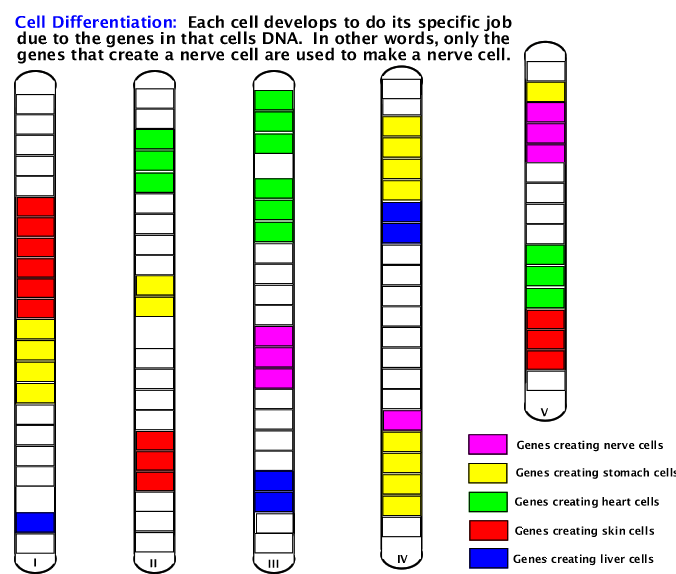Ch. 5 CELL THEORY
*1. All organisms composed of one or more cells.
*2. Cell are smallest
living organizational units (smallest living things).
*3. Cells arise only from division of other cells.
Viruses are non-cellular structures consisting of DNA or RNA surrounded by
a protein coat. Viruses are not considered as living cells!
Unicellular Organisms:
Single-celled organisms. Able to carry out all activities essential to living
organisms, incl: gathering food, excreting wastes, and reproduction.
Multicellular Organisms:
Organisms consisting of many cells. Such organisms have several types of differentiated
cells which work together to help the whole organism survive.
Multicellular organisms show emergent properties - 'The whole is greater than the sum of its parts!'
Differentiation: Cells specialized to perform
one task, which is reflected in their structure or function. Differentiated
cells contain identical DNA, but each type only activates certain genes which
help them become unique.

Prominent Early Cell
Biologists
*Robert Hooke: Invention of microscope. Observed
honeycomb compartments in cork he named cells.
*Antoine Van Leeuwenhoek: Observed living cells.
Termed organisms 'animalcules'.
*Matthias Schleiden: Observed plant tissues.
Proposed all plants composed of separate cells & proposed that nucleus controls
cell development.
*Theodor Schwann: Observed animal tissues. Proposed
all animals & plants composed of individual cells.
*Rudolf Virchow: Noticed cell division. Proposed
all cells come from other cells.
Slichter

